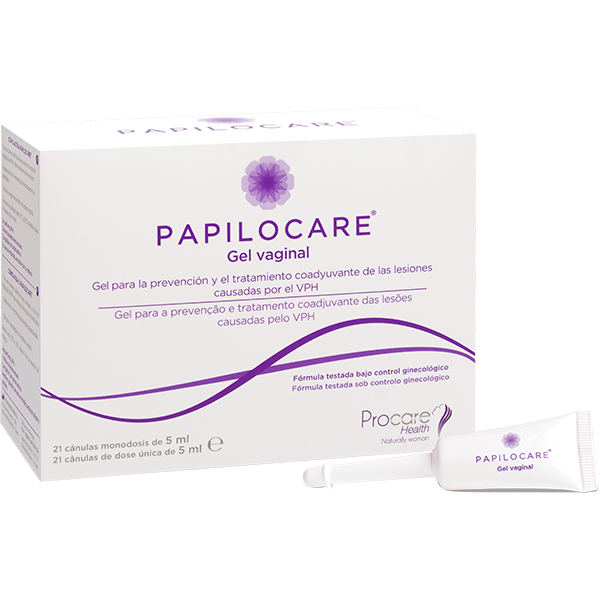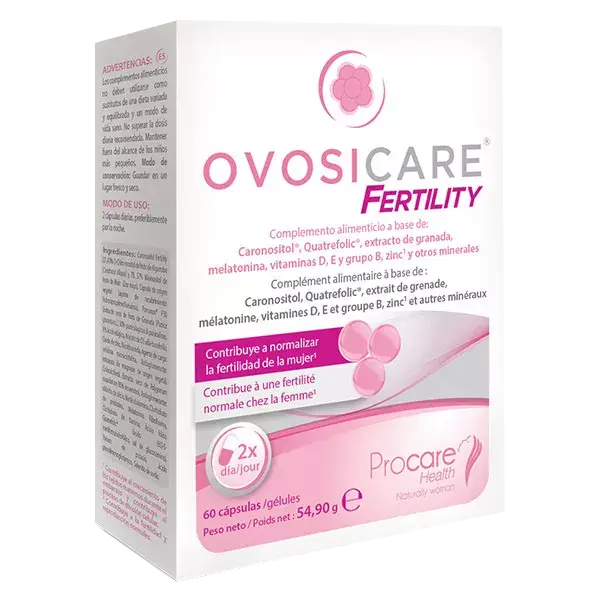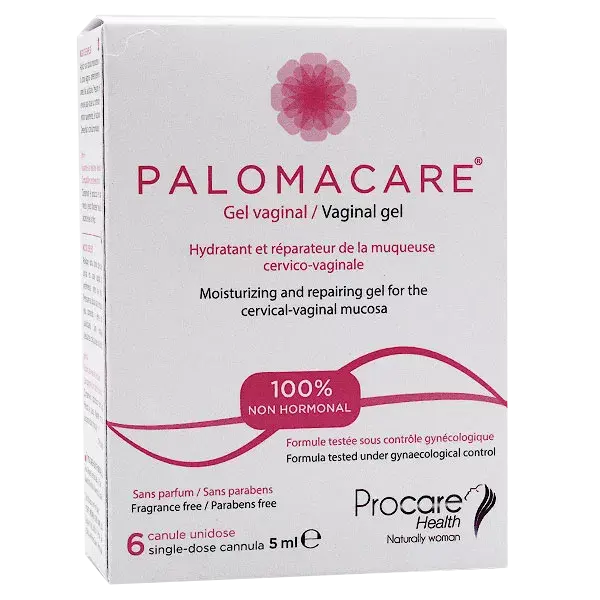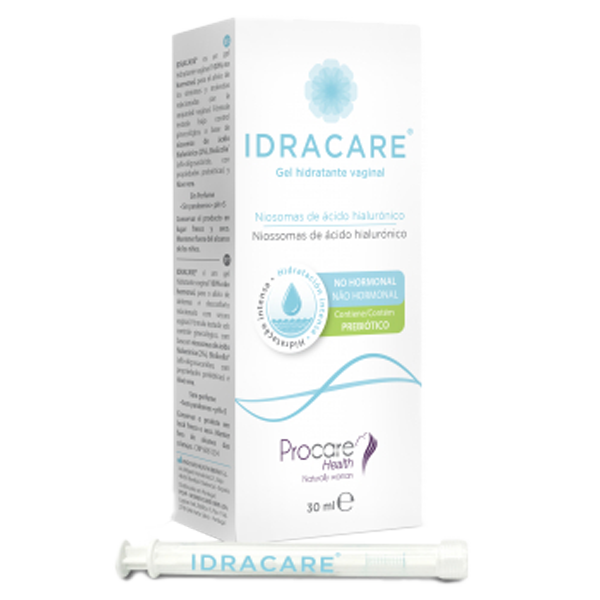
HPV Infection without Cervical Lesions
What is HPV?
Human papillomavirus, or HPV, is a very common infection, which affects the skin, and cells that line the inside of the body, including the genital area, vagina and cervix.
HPV is spread by skin-to-skin contact, and is easy to catch during sex. You don’t have to have sexual intercourse (penetrative sex), as it’s possible to catch HPV through any skin-to-skin contact in the genital area.
HPV is considered to be the most common sexually transmitted infection (STI). Most sexually-active people will get HPV at some point in their lives, but it often causes no symptoms, and the body’s own immune system will clear it over time. As a result, many people will never know they’ve had it.
Can HPV cause health problems?
There are more than 100 types of HPV, many of which are completely harmless.
Some types of HPV can cause genital warts, which can be treated with conventional surgery, laser surgery, freezing or with a topical (locally applied) cream or liquid.
There is also a number of so-called ‘high risk’ types of HPV, which can increase the risk of developing cancer of the cervix, vulva or vagina.
However, it’s important to remember that cervical cancer is not common: according to Cancer Research UK, it’s the 14th most common cancer in women in the UK1.
If you have not been told you have a high-risk type of HPV, you won’t need any further tests until your next cervical smear test (pap test).
I’ve tested positive for HPV – what does it mean?
When you have a cervical smear test (also known as a pap test), some cells are taken from the cervix and tested for HPV.
Most people who get a positive test will have no problems. Your body will clear the infection within two years of getting it, and you will have no symptoms.
Some types of ‘low risk’ HPV can cause genital warts. If you develop genital warts, you can get treatment to remove them. This is usually done in a clinic that specialises in sexual health.
There are also a number of ‘high risk’ types of HPV. Over time, these can change the cells of the cervix from normal to abnormal, and these abnormal cells or lesions can lead to cancer. If you have an infection with a high risk type of HPV, which lasts a long time in your body, you are more at risk of developing cervical cancer.
The UK has a cervical screening programme, which offers a regular smear test (pap test) to women between the ages of 25 and 64. (Other countries have similar national programmes.)
This test is designed to pick up any early changes in the cells, before they have a chance to become cancerous, and remove them.
The cells in your sample are checked for high risk types of HPV. If you don’t have these, you won’t need further tests. If they are found, your sample will be checked to see if you have abnormal (pre-cancerous) cells. If you do, you will be offered treatment to remove these cells (also known as lesions) before they can become cancerous.
Other types of genital HPV can cause normal cells of the cervix to become abnormal. These cells are known as lesions, and sometimes they can lead to cancer. There are about 13 types of HPV that can lead to cancer, and these are known as high risk types of HPV. About 70% of HPV-related cervical cancer is caused by two high risk types of the virus: HPV-16 and HPV-18.
If one of the high risk types of HPV isn’t cleared by the body, but causes a long-lasting infection, this can lead to pre-cancerous lesions of the cervix. These need to be removed before they become cancerous.
The results of your cervical screening test will tell you if you have HPV and if you have a high risk type. It will also tell you if you have any changes in cells that could lead to cancer. If so, you will be offered further tests and, if necessary, treatment.
However, it’s important to remember that most HPV infections will not cause cancer.
Is there anything I can do to help clear HPV?
Papilocare® Immunocaps is a food supplement with a unique formula which works to strengthen the body’s natural defences for women with HPV and other vaginal infections. It can help to improve the natural protective environment of the vagina (the vaginal microbiota)9, enhance the immune system 10,11 and promote the clearance of HPV.12
Papilocare® Immunocaps is based on Reishi extract (Ganoderma lucidum, a medical mushroom traditionally used in Chinese medicine) with clinically proven antioxidative and immune-boosting properties.10 It also includes a powerful combination of probiotics,9,11-16 an advanced form of folate (folic acid), anti-oxidants and a complete multivitamin mineral complex.17
How do Papilocare® Immunocaps work?
- Reishi polysaccharides have been shown to enhance the immune system by clearing high-risk HPV after two months of taking an oral supplement.18-20 This includes HPV types 16 and 18, which are responsible for most cervical cancers and pre-cancerous cell changes.
- Beta-glucan, the polysaccharides abundant in Reishi, has well-researched immune-boosting effects, stimulating the activity of different immune cells. This compares favourably with alpha-glucan, another polysaccharide found in mushrooms such as shiitake. Beta-glucan has also demonstrated anti-oxidative and anti-cancer properties.
- In addition, the microbiota (beneficial microorganisms living in the vaginal area) plays a central role preventing vaginal infections, including HPV. 21,22 A healthy vaginal microbiota is typically composed mostly of Lactobacillus. From all the different types of vaginal Lactobacillus, it is thought that Lactobacillus crispatus might be the most protective, guarding against vaginal infections and maintaining a natural protective environment in the vagina. 23,24
A recent study of patients suffering vaginal dysbiosis (disturbed microbiota) and HPV infection showed that after 90 days of taking oral supplements with Lactobacillus crispatus, 94% had a healthy vaginal microbiota. They were also significantly more likely to rid their bodies of HPV infection. This was compared to the clearance rates usually found in the general population. These results suggest that supplements with probiotics could be a promising approach to improve HPV clearance 25 .
- Immunocaps also contain Quatrefolic®, an active form of folic acid. Folic acid is essential for cell division and to prevent the growth of abnormal cells. Insufficient levels of folate can impair the body’s ability to regulate cell growth and increase the chances of abnormal cell growth, such as HPV-induced lesions, and cervical cancer.
Humans cannot produce folate and must get it from their diet or folic acid supplements. It has to be converted in the body to the active form, known as folate, that can be used by the cells. However, more than a third of women in Europe cannot process folic acid into the active form, and so supplements don’t work for them. Quatrefolic®, which already comes in the active form, is available in Immunocaps, leading to better control of abnormal cell growth.
Where can I get Papilocare® Immunocaps?
Having launched originally in Spain in 2016, the full Papilocare® range is now available in more than 60 countries worldwide and has been used by more than 600,000 women. Papilocare® Immunocaps are available to buy in the UK via Livbio.co.uk (Papilocare® Immunocaps – LivBio) or in pharmacies nationwide.
For more information about the Papilocare® range of products see Papilocare – Now stand up to HPV.
What are HPV-induced lesions?
Please refer to our page on HPV infection with cervical leisons.
Are genital warts and lesions different?
Yes – although both can be a result of infection with HPV, they are different health issues, and they need different treatment.
Some types of genital HPV cause warts, and these can vary in size, shape and number. Common types of HPV that cause genital warts are HPV-6 and HPV-11. These are known as low risk HPV types.
There are different treatments to remove genital warts, including surgery, freezing and applying a medicated cream or liquid.
What is Papilocare® external genital gel for?
Papilocare® external genital gel is for men and women who have completed surgical removal or cryotherapy of genital warts caused by HPV. Genital warts are fairly common – 8% of people get them some time in their lives. They are caused by human papillomavirus (HPV) which is a very common infection. Papilocare® external genital gel is for men and women 18 years old or older who have HPV-related genital warts (known as condylomas) that have already been treated medically or surgically, for example with laser surgery. Papilocare® external genital gel will help repair the affected genital mucosa, and help prevent the warts from recurring. Speak to your doctor or a medical specialist before starting treatment with Papilocare® external genital gel.
Recommend Products
Papilocare® External Genital Gel
Price range: £19.60 through £55.90 (VAT included)
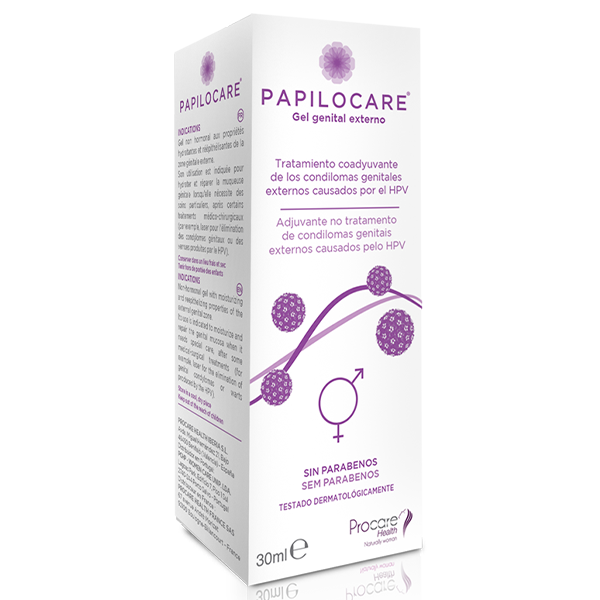 Shop Now
Shop NowPapilocare® Immunocaps
- 30 capsules - £34.30 (£1.14 per capsule)
- 90 capsules - £99.90 (£1.11 per capsule)
- 180 capsules - £195.20 (£1.08 per capsule)
Price range: £34.30 through £195.20 (VAT included)
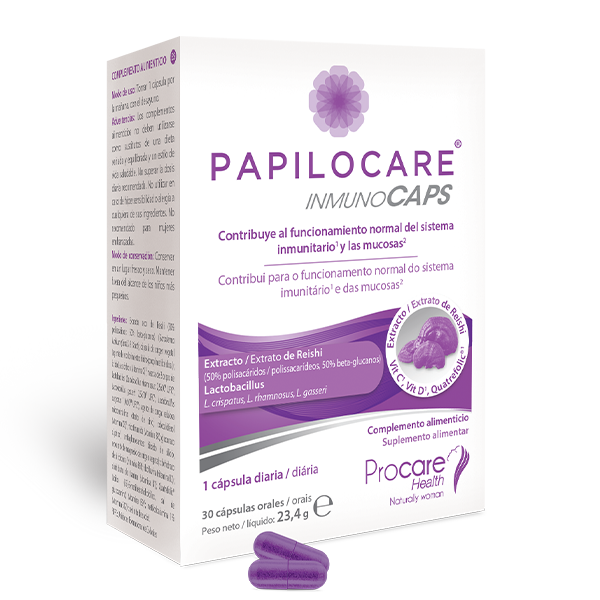 Shop Now
Shop NowSocial
Sign up to receive our newsletter and a welcome discount code:
Disclaimer: Information on this website is provided for informational purposes only and not intended as a substitute for the advice provided by your physician or other healthcare professional. You should not use the information on this website for diagnosing or treating a health problem or disease, or prescribing any medication or other treatment. For medical advice, diagnosis and prescription, please consult a healthcare professional. More Information >
Disclaimer: Information on this website is provided for informational purposes only and not intended as a substitute for the advice provided by your physician or other healthcare professional. You should not use the information on this website for diagnosing or treating a health problem or disease, or prescribing any medication or other treatment. For medical advice, diagnosis and prescription, please consult a healthcare professional.
© LivBio Limited 2024 All Rights Reserved.
